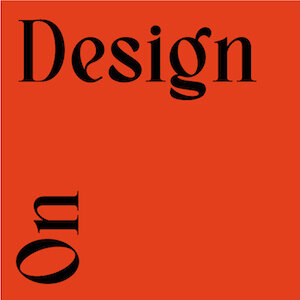Albert Hill on the modern house
‘A house is so many more things than just the bricks and mortar. It’s a backdrop for your life.’
It sounds like an obvious remark from Albert Hill, the founder of The Modern House. Yet the average experience of buying or selling a property tends to feel purely transactional. Most of the time, the estate agent liaison is the worst part of the process, as we try to protect ourselves from their tricks and white lies. All supposed to get us over the line faster than we can say, ‘is there planning permission on that extension?’
The Modern House promises to be a different type of an estate agency; one that’s in the matchmaking business of finding sympathetic buyers for the most interesting houses in the UK.
When asked about the beginnings of the business, Albert recalls always wanting to run his own company. Whilst working as a design editor of Wallpaper* magazine, he sold design-led furniture as his side-hustle. He quickly realised the drawbacks of that business model though; the upfront costs of holding stock and space required for it. His search for new business ideas continued.
The lightbulb moment came in Florida, US, whilst on an assignment from Wallpaper* to write about an estate agency selling remarkable houses in Sarasota. A business with a strong connection to architecture and design, yet—thankfully—no stock!
Back in 2004, the estate agency business in the UK was largely bland and uninspiring. Albert recalls that the bar was set so low that doing anything interesting in the space would make you stand out.
Without any property background he called on the experience of his old school friend and then a World of Interiors journalist, Matt Gibberd and his family. Their conversation quickly turned into a solid business idea and that’s how ‘The Modern House’ was born—with Matt joining as the co-founder.
Six Pillars House in Dulwich designed in the 1930s by Berthold Lubetkin was the very first house the duo had on their books, after a scoop that its owner was desperate to sell. Whilst they didn’t manage to find a new owner for the property, the building’s prestige provided a catchy launch story for the company.
It was still some time before the company started to work and Albert recalls desperate days when the phone wouldn’t ring and his email inbox was empty. Without a business plan at hand either, it was the sheer passion and energy that eventually led the co-founders to the first sale. Luckily, others quickly followed as their network of contacts started to believe that they could not only ‘talk the talk’ but also ‘walk the walk’.
Despite hard beginnings, the duo managed to stick to their mission of selling design-led properties to engaged, sympathetic buyers. In our conversation, Albert shared that most of The Modern House buyers aren’t in the market of buying a house. It’s curiosity that attracts them first—the story, design, and architecture of a property. Once they stumble upon one that they ‘fall in love with’ it’s often a done deal and the sale goes through.
Albert admitted their approach has a flaw as most of the buyers live in their properties for many years. For that reason, referrals are key for the business and the company has been working hard on building a thoughtful brand which can act as a hallmark of good taste. It’s a marketing tactic that has worked; The Modern House website receives 15 million page views per year and boasts nearly 150,000 Instagram followers. Every day the company engages with potential customers years before they consider buying their first property—with a hope that The Modern House will be the first that comes to mind when they are ready to get on the property ladder.
Potential customers can choose from a varied portfolio of houses and apartments, big and small, and all with outstanding architectural and design credentials. Right now on their website there is a plot of land on which to build a Cube House by Carl Turner Architects in London, an ‘Elephant House’ in Kent, Ross Lovegrove’s home and studio to a rural mid-century Yorkshire retreat.
The Modern House doesn’t only have a strong brand presence; the business has grown double digits in the last year. A new hire of a Managing Director is also set to define future direction, whether that’s expanding the business model globally or growing the services portfolio. Whichever path the business takes, it predicts steady growth as Albert quotes a key statistic; that design-led houses tend to outperform the market on average by 12%.
__
Listen to the On Design podcast now on Apple Podcasts, Spotify and Google Podcasts.
Presented and produced by Justyna Green - follow Justyna on Instagram.
Music by James Green







